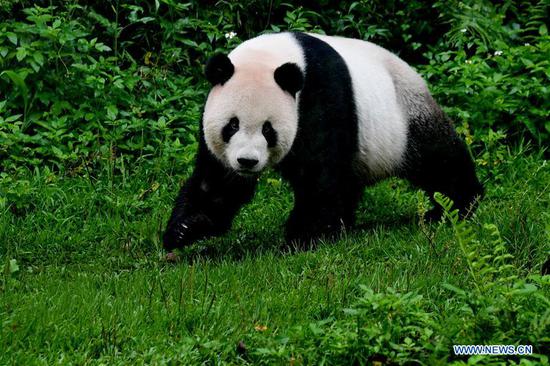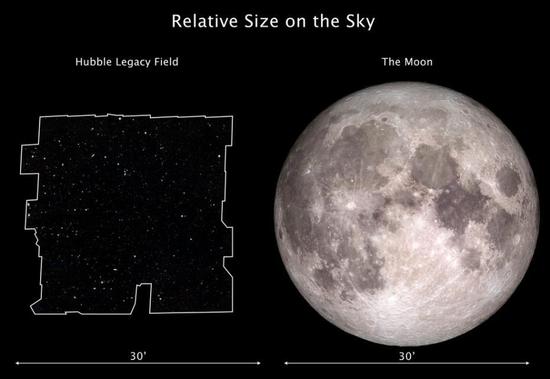
A customer in the U.S. is eating a meat-free hamburger. CHINA DAILY
If you enjoy a tasty, juicy hamburger, you're not alone. Americans love them so much that they eat 50 billion a year.
While diehard meat-lovers would argue that there's nothing quite like a mouthwatering hunk of meat, an increasing number of U.S.-based companies are producing plant-based meat-free products that some consumers say are so good they're indistinguishable from the real thing.
Beyond Meat, a Los Angeles-based startup worth $3.8 billion, leads the pack, which includes Impossible Foods Inc, based in Redwood City, California, and Just in San Francisco, which makes egg-free eggs. All want to appeal to vegans, vegetarians and even self-avowed carnivores.
"It's really difficult to distinguish between the Impossible Whopper and the original offer," Burger King's CEO José Cil said about the company's new meat-free, plant-based version of its Whopper, which will use an Impossible Foods' patty.
The fast-food giant and its parent company, Toronto-based Restaurant Brands International, announced last month that it had undertaken successful trials of the plant-based burger in 59 St Louis restaurants and will sell the Impossible Whopper in a few select cities this summer before rolling them out nationwide to at least 7,300 locations. The meatless burger will cost $1 more than a regular Whopper, which sells for $5.89 in New York City.
"Just tried Burger King's new Impossible Whopper and it was tasty," tweeted Aprylete Russell, a journalist and vegetarian. "I had to double check after my first bite to make sure they didn't give me meat, it was that good!"
Tim Convy, a radio host in St Louis, tweeted: "I just had a vegan Whopper. Burger King nailed this thing."
Burger King's move to offer substitute meat on its menu comes as figures show sales of plant-based meat substitutes increased 22 percent to $1.5 billion last year, according to Euromonitor International, a London-based market intelligence firm.
"The world is coming around to seeing that plant-based meats can be delicious," Impossible Foods CEO Pat Brown said in a statement.
Impossible Foods also counts burger chain White Castle as a customer. And 5,000 restaurants, including the Hard Rock Café and Red Robin, use Impossible Meat in their dishes.
McDonald's, the world's largest burger chain, is considering whether to offer meatless meat.
Impossible Foods told CNN on April 30 that there was so much interest in their product that the company was struggling to keep pace with demand.
Impossible Foods' burger is a mixture of water, soy protein concentrate, coconut oil, sunflower oil and other natural flavors.
Its main competitor, Beyond Meat's burger, is made from yellow pea protein, coconut oil and other ingredients, along with beet juice for the "bloody" effect mimicking meat.
"We don't want you to walk away from meat, we're just taking animals out of the equation," Beyond Meat's CEO Ethan Brown told CBS.
Beyond also makes substitute sausages, chicken, beef and Beyond tacos are sold at Del Taco.
The push toward being meat-free comes as the American Heart Association, Johns Hopkins School of Public Health and Kaiser Permanente, an American integrated managed care consortium based in Oakland, California, urge people to cut down on their meat intake to help improve their health.
"There are many benefits associated with not eating meat," Freya Dinshah, president of the American Vegan Society, told China Daily. "And the number of toxins you get from meat is greatly reduced."
Beyond Meat, founded in 2009, has also bagged a handful of high-profile backers, including Microsoft founder Bill Gates and actor Leonardo DiCaprio.
CEO Brown has made it clear he wants his products to take on the meat industry and not just his plant-based food rivals.
Only time will tell if consumers will remain interested in meat substitutes or whether they'll "shift to something else", Justin Sherrard, global animal protein strategist at Rabobank, told The Financial Times.
There's one sector of the food industry that is not keen on waiting to see what happens next-meat and cattle farmers.
They are fighting back over the use of the word "meat" because they say companies producing plant-based foods are using it to mislead consumers.
"It [plant-based meat] shouldn't be called meat because it's not," said Mark Dopp, senior vice-president at the North American Meat Institute.


















































